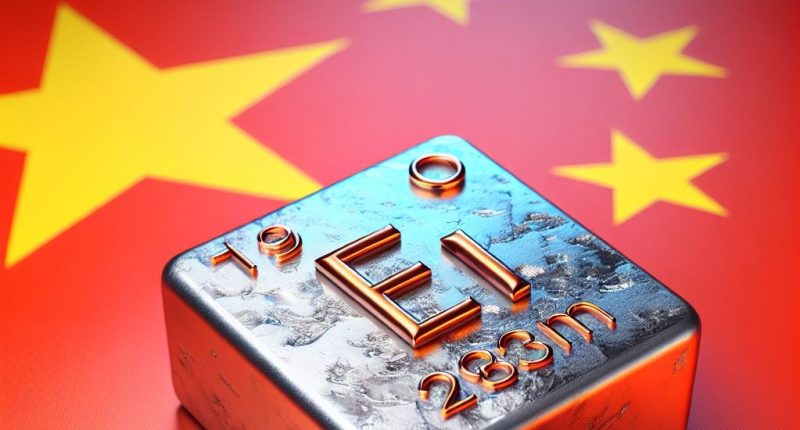China has recently imposed export controls on items related to tungsten, tellurium, bismuth, molybdenum, and indium, as reported by the Ministry of Commerce.
Background
According to the Ministry, this decision aims to protect national security and interests, as well as fulfill international obligations regarding nuclear non-proliferation. Exporters will be granted licenses for materials that comply with relevant regulations.
Prices of tungsten and other industrial metals have risen sharply since China, a vital supplier, tightened export restrictions. This article explores the technological and industrial impact of these controls and investigates corporate strategies and market responses.
Technological and industrial impact
Importance of tungsten
Tungsten is a critical material used in high-performance magnets, electronics, and advanced manufacturing. Its unique properties, such as high melting point and density, make it indispensable in various applications, including aerospace, defence, and electronics. The recent export controls have significant implications for industries reliant on tungsten.
Adaptation strategies
Industries affected by the export controls are exploring several adaptation strategies:
- Alternative materials: Companies are researching and investing in alternative materials that can replace tungsten in certain applications. This includes exploring new alloys and composites that offer similar performance characteristics.
- Domestic production: Increased investment in domestic production capabilities is another key strategy. Countries like the United States are ramping up efforts to secure their own supply chains by boosting local mining and refining operations.
- Technological innovation: Advanced manufacturing techniques, such as additive manufacturing (3D printing), are being leveraged to optimize the use of tungsten and reduce waste.
Corporate strategies and market responses
Securing supply chains
Corporations are employing various strategies to secure their supply chains in response to China’s export controls:
- Diversification: Companies are diversifying their sources of tungsten by establishing partnerships with suppliers in other countries, such as Vietnam and Russia. This can reduce dependency on Chinese exports and mitigates risks associated with supply chain disruptions.
- Onshoring: Onshoring production and refining processes is becoming increasingly popular. By bringing these operations closer to home, companies can better control their supply chains and could reduce exposure to geopolitical risks.
- Investment in alternative sources: Increased investment in alternative sources of tungsten, including recycling and secondary production, is helping companies secure a more stable supply.
Market reactions
The market has reacted to China’s export controls with notable price fluctuations and changes in stock performance:
- Price increases: Tungsten prices have surged, with ammonium paratungstate (APT) seeing a price increase of over 20% in a matter of months. This has led to higher costs for manufacturers and increased uncertainty in the market.
- Stock performance: Companies involved in tungsten production and supply have seen varied stock performance. For instance, American Tungsten Corp. (CSE:TUNG) has tried to solidify its position in the face of the expanded export controls, positioning itself to meet growing domestic demand.
Two other companies to watch in this space:
Allied Critical Metals Corp., a Canadian mining exploration and development company focused on the near-term, low-cost production of Tungsten on two historical Portuguese projects, and Guardian Metal Resources (LON:GMET / OTCQX:GMTLF), a mineral exploration company focused on tungsten in Nevada, who recently advanced mining operations in the state.
Conclusion
China’s recent export controls on tungsten and other critical minerals have far-reaching implications for industries and markets worldwide. Investors should closely monitor these developments and consider the potential impacts on supply chains, technological innovation, and corporate strategies. Deepening due diligence is necessary to navigate the complexities of the global minerals market and make informed investment decisions.
Join the discussion: Find out what everybody’s saying about stocks in this field on the Industrial Metals and Mining Bullboard, and check out the rest of Stockhouse’s stock forums and message boards.
The material provided in this article is for information only and should not be treated as investment advice. For full disclaimer information, please click here.
(Top image generated with AI.)





